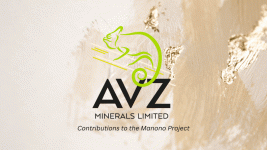Personally I would ask Nigel and Ben if it's true. And would give them a 2 day deadline for a response.
If nothing is coming I would continue with the fireworks and would give a fuck about jens opinion.
Because who is his source? If not the management surely not the president or a minister by himself. Maybe just the Canadian Book Selling Prince?

Zijin bought the 15% in the August/September 21....
Felix had 18 months time to stop this deal, 18 months to kick out the MoP, 18 months to help AVZ.
But did nothing. Instead he praised his country how save it is, making deals in a new battery council where we are not involved and talked more with chinese to make new deals instead with our company to start the first progress. Made a SEZ for a battery plant without securing the lithium for it in this moment.
The reshuffle is overdue, and I don't think it will happen.
This guy have at least 2 watches for worth more then 700k, flying through the world and is talking more silly stuff as a drunken priest, don't act against corruption after showing him clear evidence even after his IGF bulldog showed it (he is the real champion in my opinion).
And now he's worried about Macron and only has his re-election on his mind.
Fuck of, do your fuckin job and help your people and stop that shit.
If honest facts from shareholders make him feel uncomfortable then rightly so. They gave us a million reasons to do it.
In addition, your counters are factual and not only offensive in a bad way.
If felix disadvantage avz even more because of the actions of the shareholders, then he just shows how incompetent he is on many levels.
Im my opinion I would double the number of firework!
P.s: After writing more than 100 emails to different parts of the government: zero response
But it gave me the energy for the next 100!

